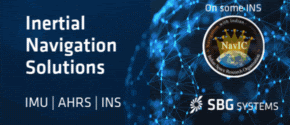Articles in the GPS News Category
‘Vulcan 64-bit users will notice some small changes in workflows from the previous 32-bit version, mostly relating to setup for third party components such as ODBC drivers. For our own applications, it will be business as usual.’ Vulcan 8.1.4 includes new options for resource modelling and short term planner tools, along with composited models for stratigraphic deposits, stripping ratio tools for stratigraphic models and improved grade shells. The move to 64-bit is the first step in a range of improvements that are designed to bring more power to the Vulcan suite.
Norway intends to expand surveys of a previously disputed area in the Arctic offshore region bordering Russian waters ahead of potential oil exploration, Norway’s prime minister. The country’s seismic survey program began last summer in the boundary waters of the Barents Sea and will now move north, to an area east of the Svalbard archipelego, Prime Minister Jens Stoltenberg said. The more northerly part of the survey program will start this summer and continue into 2013.
The US Supreme Court ruled that police need a search warrant before tracking a suspect with a GPS device, in a case involving privacy and 21st century technology. The highest US court ruled 9-0 that police had violated the rights of a suspected drug dealer when they placed a GPS, or tracking device, on his vehicle without a warrant and tracked his movements.
Russian satellite producer Reshetnev Information Satellite Systems plans to start developing a new generation satellites for the country’s Global Navigation Satellite System (GLONASS) in 2017. The company plans to fi nish developing the projected satellites, called GLONASS-KM, in 2020.
On November 30, the GLONASS-K1 satellite, GLONASS 701(K), which had been using broadcast almanac slot 3 and transmitting on frequency channel -5 while undergoing flight tests, ceased transmissions on its assigned channel and was removed from the almanac.GLONASS 744, launched with the other Block 44 satellites on 4 November 2011 and which achieved its orbital slot 3 in Plane 1 a few days ago, was activated and is transmitting on frequency channel 5. It is currently set unhealthy in both the almanac and the ephemeris while undergoing further commissioning.GLONASS 743 and 745 are still moving towards their designated orbit slots.
Russia’s GLONASS has been upgraded to a precision of up to 5 metres after the successful launch of the 24th GLONASS satellite on 3rd October 2011. The launch marked a turning point bringing the number of GLONASS satellites to a complete set, as planned by the designers. Previous versions of GLONASS had an accuracy within 50 metres.
Space Wing installs large software sustainment release
The 50th Space Wing’s 2nd Space Operations Squadron installed a major software release containing 104 fixes to the GPS Ground Segment. This is the largest sustainment release to the GPS ground segment since transitioning to the Architecture Evolution Plan system in 2007. Since 2007, the GPS Directorate has been concentrating on delivering new capability software to the ground segment for the IIF satellite, increasing navigation signal strength and anti-spoof capability.
50th Space Wing gains control of newest GPS Satellite: The 50th Space Wing’s 2nd Space Operations Squadron accepted command and control of the second Global Positioning System Block IIF satellite. The Space and Missile Systems Center’s GPS Directorate, located at Los Angeles Air Force Base, remained in control of the satellite during a 30-day on-orbit checkout period before the hand-off to 2 SOPS. The next-generation GPS IIF satellites built by Boeing will provide improved accuracy through advanced atomic clocks, a longer design life than legacy GPS satellites, and a new third civil signal, L5 that will eventually benefit commercial aviation and safety-of-life applications
The Space Applications Centre in Ahmedabad of the Department of Space of the Government of India recently selected the NavX®‐NCS Professional, a multi‐constellation and multi‐frequency GNSS RF navigation constellation simulator from IFEN GmbH, as the new reference simulator for its IRNSS development and testing. The IRNSS payload system engineering group of the Space Applications Centre (SAC) in
EC furthers GMES operations: The European Commission (EC) signed an agreement with European Space Agency (ESA) to provide EUR 104 million fund for the initial operations of the Global Monitoring for Environment and Security programme (GMES). GMES will provide decision-makers with access to accurate and timely information services to manage the environment, understand and mitigate the effects of climate change, and ensure civil security.










 (5.00 out of 5)
(5.00 out of 5)